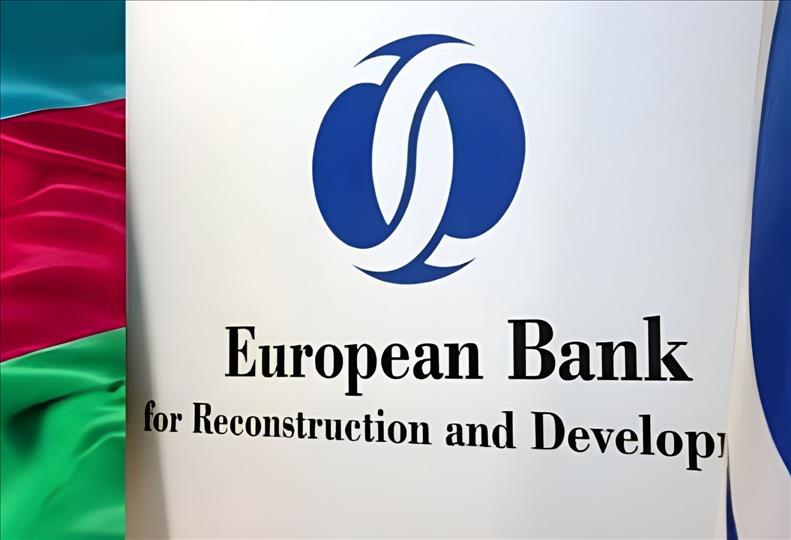
Azerbaijan's 2024 Prospects Shine With EBRD's Positive Outlook
As we get closer to end of the year 2024, a number of data, forecasts are emerging that indicate the trajectory on which the country's economy will or may develop. Most certainly after a two-week long COP29 marathon, everyone is undoubtedly curious about how the country's budget for next year will be formed. Just a day after Azerbaijan's parliament defined how the budget will be spend on the upcoming year, the European Bank for Reconstruction and Development (EBRD) has offered a cautiously optimistic forecast for Azerbaijan's economic future.
Main highlight in report states the slowing inflation and steady GDP growth, underpinned by a strong recovery in the oil and gas sector.
According to the EBRD, Azerbaijan's average annual inflation is set to drop significantly to 3.5% by then end of 2024, a sharp decline from the 8.8% recorded in 2023. This aligns with broader trends of stabilization in domestic pricing and increased confidence in fiscal policy. The bank also anticipates a current account surplus of 8.5% of GDP in 2024, slightly lower than the 9.9% recorded in 2023, reflecting sustained robust export earnings.
The EBRD's report attributes Azerbaijan's accelerating GDP growth in 2024 to recovering energy exports, bolstered by strong gas demand and targeted government investments. It forecasts real GDP growth at 3.8% in 2024 and 2.7% in 2025, with the caveat that these projections are sensitive to oil and gas price fluctuations and regional geopolitical dynamics.
"Inflation remains within the central bank's target range," the report highlights, suggesting a strengthened monetary framework. Additionally, the report notes that ongoing energy projects and public spending initiatives are likely to sustain momentum in economic activity over the medium term.
While the EBRD maintains a cautious stance, Azerbaijan's Ministry of Economy projects slightly higher figures, forecasting GDP growth of 4.2% in 2024 and 3.5% in 2025. The Ministry also expects average inflation to moderate further, estimating it at 2.7% in 2024 and 4.6% in 2025, underscoring the government's confidence in its economic management policies.
Despite positive trends, challenges remain. The heavy reliance on hydrocarbon exports makes Azerbaijan's economy vulnerable to global energy price volatility. However, the government has signaled efforts to diversify the economy, investing in non-oil sectors and renewable energy initiatives.
In 2023, Azerbaijan's GDP grew by just 1.1%, impacted by global economic uncertainties and inflationary pressures. However, with inflation now stabilizing and the energy sector rebounding, the outlook for 2024 appears more promising.
The numbers might seem low, in terms of the percentages, however for a middle-income country those are quite huge and impressive. In fact, in times of energy price volatility - certainly in gas and oil sector, positive outlook proves the point once again. The EBRD's forecasts, coupled with the Ministry of Economy's higher growth projections, highlight an improving economic trajectory for Azerbaijan. As inflation cools and energy exports remain robust, Azerbaijan is poised to navigate global economic challenges and sustain growth, albeit with careful attention to geopolitical and market risks.
For further information it is important to add, The European Bank for Reconstruction and Development is one of the oldest and most active foreign financiers of Azerbaijan. Since the beginning of the full partnership between Azerbaijan and the Bank in 1992, more than 3.711 billion euros have been allocated to our republic to implement 191 projects. Notably, the EBRD intends to provide Azerbaijan with $750 million of loans from 2023 to 2025, with a substantial part of the loans going to "green" industries, according to the new EU policies.
Overall, the EBRD believes that Azerbaijan has significant potential to become a leader in the transition to low-carbon energy and green industry, as the government recognises the potential of renewable energy and the importance of building appropriate sustainable infrastructure in line with the country's commitments under the Paris Climate Agreement.
Legal Disclaimer:
MENAFN provides the
information “as is” without warranty of any kind. We do not accept
any responsibility or liability for the accuracy, content, images,
videos, licenses, completeness, legality, or reliability of the information
contained in this article. If you have any complaints or copyright
issues related to this article, kindly contact the provider above.

















Comments
No comment